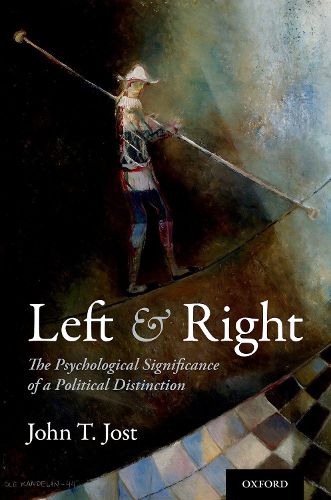Readings Newsletter
Become a Readings Member to make your shopping experience even easier.
Sign in or sign up for free!
You’re not far away from qualifying for FREE standard shipping within Australia
You’ve qualified for FREE standard shipping within Australia
The cart is loading…






This book brings together for the first time an updated, revised collection of influential essays and articles that capture some of the most exciting scientific and scholarly contributions to the topic of political ideology. John Jost tackles fundamental questions about how psychology, neuroscience, and societal factors impact political attitudes and group divisions. In what sense, if any, are ordinary citizens ideological ? Is it useful to locate political attitudes on a single dimension of representation? Are there meaningful differences in the beliefs, opinions, and values of leftists and rights-or liberals and conservatives? How are personality traits related to ideological preferences? What situational or contextual factors contribute to liberal and conservative shifts in the general population? What are the implications of ideological polarization for the future of democracy? Drawing on Max Weber’s concept of elective affinities, one of the world’s leading political psychologists discusses the myriad ways in people choose ideas and ideas choose people.
$9.00 standard shipping within Australia
FREE standard shipping within Australia for orders over $100.00
Express & International shipping calculated at checkout
This book brings together for the first time an updated, revised collection of influential essays and articles that capture some of the most exciting scientific and scholarly contributions to the topic of political ideology. John Jost tackles fundamental questions about how psychology, neuroscience, and societal factors impact political attitudes and group divisions. In what sense, if any, are ordinary citizens ideological ? Is it useful to locate political attitudes on a single dimension of representation? Are there meaningful differences in the beliefs, opinions, and values of leftists and rights-or liberals and conservatives? How are personality traits related to ideological preferences? What situational or contextual factors contribute to liberal and conservative shifts in the general population? What are the implications of ideological polarization for the future of democracy? Drawing on Max Weber’s concept of elective affinities, one of the world’s leading political psychologists discusses the myriad ways in people choose ideas and ideas choose people.